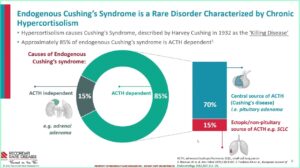NEW YORK (Reuters Health) – Taking levothyroxine on an empty stomach at bedtime, instead of in the morning before breakfast, significantly improves thyroid hormone levels and many patients prefer it, hint results of a prospective randomized crossover study.
Ninety patients completed the study. Compared with morning dosing, bedtime dosing led to a decrease in the thyrotropin level of 1.25 mIU/L (P < 0.001), an increase in free thyroxine level of 0.07 ng/dL (P = 0.01), and an increase in total triiodothyronine level of 6.5 ng/dL (P = 0.02).
When the study ended, more than half of the patients decided to continue taking levothyroxine at bedtime instead of going back to the usual pre-breakfast dosing, the study team reports in the December 13/27 double issue of Archives of Internal Medicine.
“Doctors and patients need to know that there is an alternative to taking thyroxine first thing in the morning,” first author Dr. Nienke Bolk, of Maasstad Hospital Rotterdam, the Netherlands, noted in an e-mail to Reuters Health.
“As thyroxine has to be taken on an empty stomach, patients have to wait before eating breakfast, which can be very inconvenient. If patients take thyroxine at bedtime on an empty stomach, this is more convenient and thyroxine is absorbed better by the gut,” Dr. Bolk explained.
In an earlier pilot study involving 11 patients with primary hypothyroidism, Dr. Bolk and colleagues found that levothyroxine taken at bedtime significantly decreased thyrotropin levels and increased free thyroxine and total triiodothyronine levels.
Armed with these findings, they enrolled 105 consecutive patients with primary hypothyroidism in a six-month prospective randomized double-blind crossover study. Patients were instructed to take one capsule of levothyroxine in the morning (and one placebo capsule at bedtime) or vice versa. After three months, patients were switched from levothyroxine in the morning to placebo in the morning and vice versa for another three months.
Despite improved thyroid hormone profiles, hypothyroidism symptoms were unchanged between the two periods. Bedtime dosing, relative to morning dosing, had no significant impact on measures of quality of life (including fatigue, anxiety and depression), creatinine or lipid levels, blood pressure, body mass index or heart rate.
Based on their findings, Dr. Bolk and colleagues recommend that clinicians “consider prescribing levothyroxine intake at bedtime.”
Reference:
Effects of Evening vs Morning Levothyroxine Intake
Arch Intern Med 2010;170:1996-2003.




